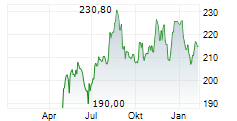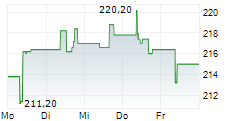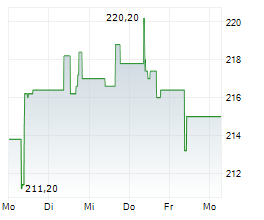Baloise Holding AG
/ Schlagwort(e): Studie/Studienergebnisse
Basel, 2. Oktober 2025. Worauf setzen die Menschen hierzulande beim Sparen? Was würden Pensionierte rückblickend anders machen? Wie zuversichtlich blickt die Schweizer Bevölkerung in ihre finanzielle Zukunft? Eine repräsentative Umfrage von Baloise in Zusammenarbeit mit dem Marktforschungsinstitut YouGov rund um die Themen Vorsorge und Vermögensaufbau liefert detaillierte Einblicke in das Sparverhalten, die Vermögensziele und das Finanzwissen der Schweizer Bevölkerung. Wie spart die Schweiz? Eine aktuelle, repräsentative Umfrage von Baloise und YouGov Schweiz liefert Antworten. Befragt wurden 2025 insgesamt 2'032 Personen im Alter von 15 bis 79 Jahren aus der ganzen Schweiz. Die Ergebnisse der Studie unterstreichen die Bedeutung einer fundierten finanziellen Bildung sowie einer frühzeitigen Auseinandersetzung mit der Altersvorsorge.
79% der Schweizer Bevölkerung geben an, dass ihnen regelmässiges Sparen (sehr) wichtig ist. Frauen ist Sparen sogar signifikant wichtiger als Männern - 82% der Frauen gegenüber 76% der Männer schätzen es als (sehr) wichtig ein. Dennoch konnte in den vergangenen sechs Monaten weniger als die Hälfte (47%) der befragten Personen tatsächlich sparen. Je nach Region zeigt sich ein deutliches Gefälle beim Sparverhalten: Während in der Deutschschweiz 50% der Befragten angeben, derzeit Geld auf die Seite legen zu können, sind es in der Westschweiz nur 41% und im Tessin lediglich 31%. Fast jede zweite Person (47%), die spart, legt bis zu CHF 1'000 pro Monat beiseite. Beim Sparen steht der Sicherheitsaspekt im Vordergrund. Die Vorbereitung auf unerwartete Ausgaben ist der grösste Motivator (71%). Für knapp ein Viertel der Bevölkerung (24%) ist dies auch der wichtigste Grund. Doch die Gründe fürs Sparen variieren über die Lebensphasen hinweg: Die unter 30-Jährigen sparen mit 19% signifikant mehr für Wohneigentum als alle anderen. Dies ist das zweithäufigste Sparmotiv der Altersgruppe.
Bei der Wahl von Sparlösungen dominiert das Sparkonto (71%) mit deutlichem Abstand zu den Alternativen. Über die Hälfte der Bevölkerung (52%) besitzt ausserdem ein klassisches 3a-Konto. Etwa jede dritte Person (31%) besitzt ein 3a-Konto mit Wertschriftenlösung. Rund ein Viertel (24%) gibt an, in Aktien- oder ETF-Sparpläne zu investieren. Die 15- bis 22-Jährigen zeigen eine besondere Affinität für diese Anlageform: 39% von ihnen besitzen ein Produkt dieser Kategorie. 54% der Bevölkerung zahlen jährlich in die Säule 3a ein - die Mehrheit davon (57%) sogar den Maximalbetrag. 15% haben hingegen noch nie eingezahlt, obwohl sie die Säule 3a kennen. Der Hauptgrund, warum Personen trotz Kenntnis des Produkts nicht in die Säule 3a einzahlen, ist ein zu geringes Einkommen (64%).
Finanzbildung hat in der Schule bislang wenig Platz - mit spürbaren Folgen: Über zwei Drittel der Bevölkerung bewerten ihre eigene schulische Vorbereitung auf Finanzthemen als unzureichend. Die Forderung nach Veränderung ist deutlich: 75% finden es (sehr) wichtig, Wissen rund um Finanz,- Vorsorge und Anlagethemen bereits in der Schule zu vermitteln. Heute erfolgt der Wissensaufbau meist informell: Die beiden mit Abstand wichtigsten Quellen für Finanzwissen sind das persönliche Umfeld (52%) sowie Bank- und Finanzberaterinnern und -berater (49%). Angebote wie soziale Medien oder Podcasts (9%) sowie (Online-)Kurse (8%) bleiben deutlich im Hintergrund.
Über die Hälfte der Schweizer Bevölkerung (57%) fühlt sich derzeit in ihrer finanziellen Lage wohl. Die Hauptgründe hierfür sind ein ausreichendes bis gutes Einkommen (33%), finanzielle Rücklagen beziehungsweise Vermögen (23%) und das Fehlen akuter Sorgen (20%). Mit Blick auf die Zukunft sinkt das finanzielle Wohlbefinden jedoch (44%), was eine Skepsis in der Schweizer Bevölkerung verdeutlicht. Als Hauptgründe werden vor allem Systemunsicherheiten in der Altersvorsorge (24%), wahrgenommene Versorgungslücken oder eine zu geringe Rente (20%) sowie eine allgemeine Zukunftsunsicherheit (17%) genannt. Besonders ausgeprägt ist das Unbehagen in der Altersgruppe der 30- bis 44-Jährigen: Nur 35% fühlen sich (sehr) wohl, während rund jede fünfte Person (21%) angibt, sich (sehr) unwohl zu fühlen.
Der Traum von der frühen Pensionierung ist weit verbreitet: Mehr als jede zweite Person unter 65 Jahren (57%) träumt von einer Frühpensionierung. Allerdings arbeiten nur 11% aktiv darauf hin. Der weit verbreitete Wunsch nach einem frühen Ruhestand steht in Kontrast zu den Erfahrungen vieler Pensionierter. 37% der über 65-Jährigen würden ihre Pensionsplanung rückblickend anders oder früher angehen.
Für Spar- und Anlagefragen setzen die Schweizerinnen und Schweizer am häufigsten auf persönliche Beratung durch Banken oder Versicherungen: 53% haben eine solche Beratung bereits genutzt. Telefonische (13%) oder digitale (10%) Beratungen spielen bisher eine deutlich geringere Rolle. Dies zeigt, dass der direkte Austausch trotz fortschreitender Digitalisierung weiterhin zentral ist. Digitale Beratungen sind vor allem bei den unter 45-Jährigen gefragt: 42% der 15- bis 29-Jährigen und 39% der 30- bis 44-Jährigen können sich vorstellen, solche Angebote künftig zu nutzen. Gleichzeitig gibt es Unterschiede zwischen den Geschlechtern: Männer (42%) greifen häufiger auf Selbststudium - etwa Fachbücher, Finanzzeitschriften oder Online-Rechner - zurück, während Frauen (41%) stärker den Rat ihres persönlichen Umfelds einholen.
Obwohl die Schweizer Bevölkerung ihre aktuelle finanzielle Situation überwiegend positiv bewertet, bestehen weit verbreitete Sorgen hinsichtlich der zukünftigen Altersversorgung. «Diese Sorgen können durch eine proaktive Finanzplanung wie sie Baloise mit ihrem Insurbanking-Modell anbietet deutlich reduziert werden. Die Kluft zwischen Wunschdenken und konkreter Planung zeigt, wie wichtig es ist, das Bewusstsein für die langfristigen Auswirkungen heutiger finanzieller Entscheidungen zu schärfen. Die Auseinandersetzung mit der eigenen Vorsorge und dem Vermögensaufbau sollte nicht aufgeschoben werden, sondern idealerweise bereits in jungen Jahren beginnen», so Clemens Markstein, CEO von Baloise in der Schweiz. Kontakt Baloise Über Baloise Ende der Medienmitteilungen |
| Sprache: | Deutsch |
| Unternehmen: | Baloise Holding AG |
| Aeschengraben 21 | |
| 4002 Basel | |
| Schweiz | |
| Telefon: | +41 61 285 85 85 |
| Fax: | +41 61 285 70 70 |
| E-Mail: | media.relations@baloise.com |
| Internet: | https://www.baloise.com |
| ISIN: | CH0012410517 |
| Börsen: | BX Berne eXchange; SIX Swiss Exchange |
| EQS News ID: | 2207186 |
| Ende der Mitteilung | / EQS News-Service |
2207186 02.10.2025 CET/CEST




